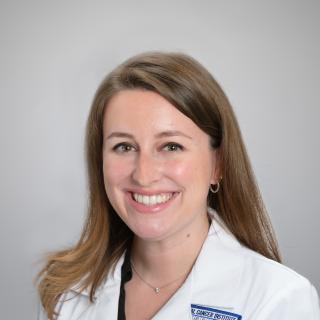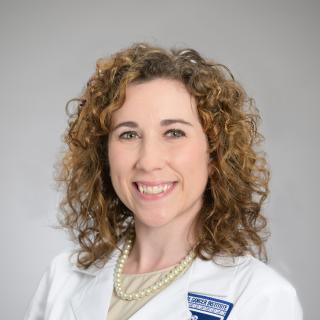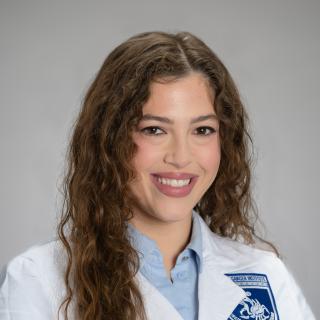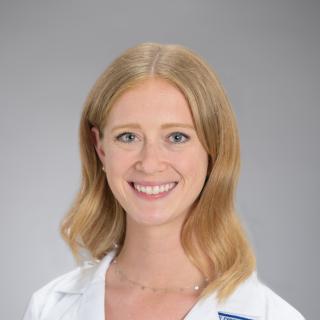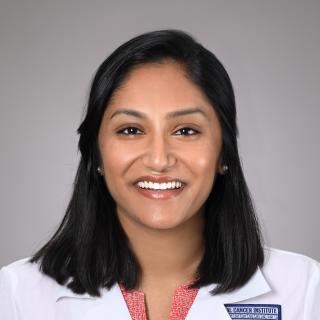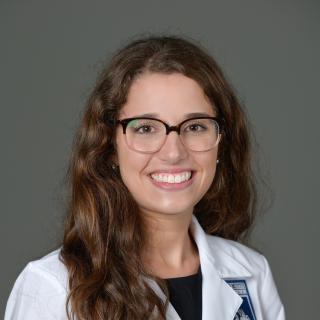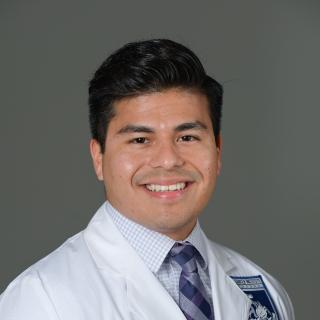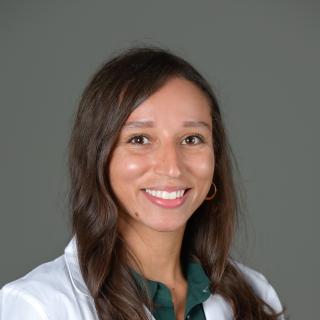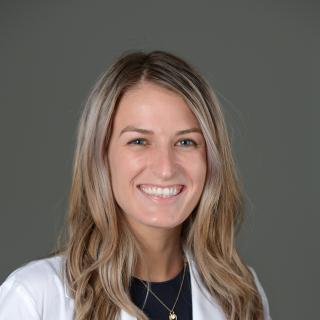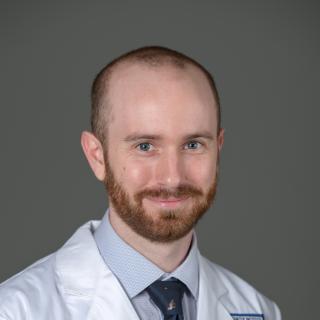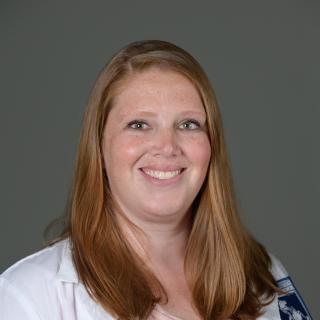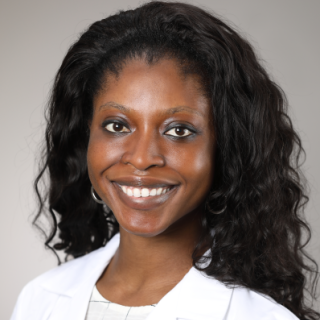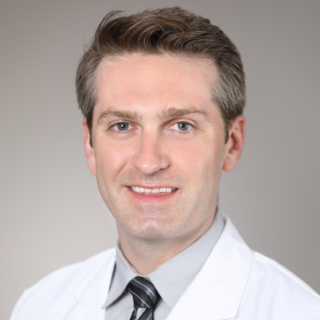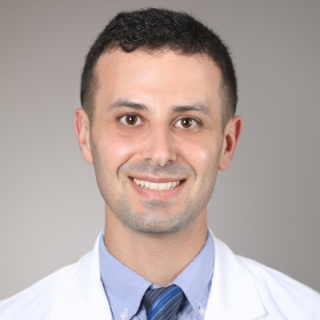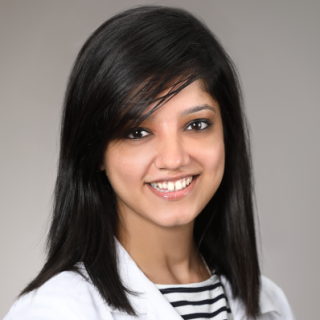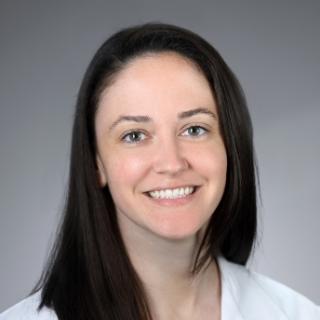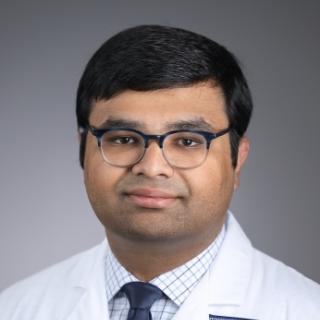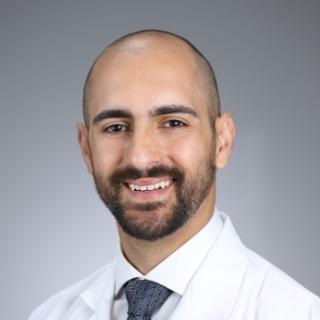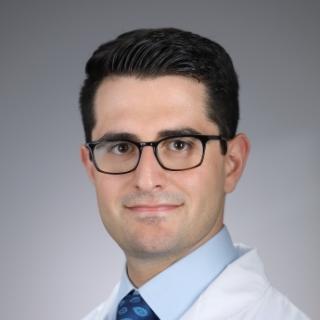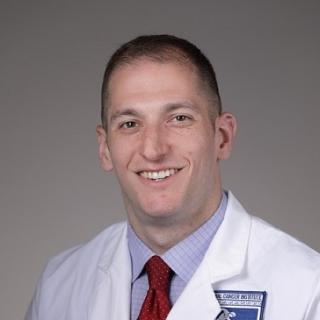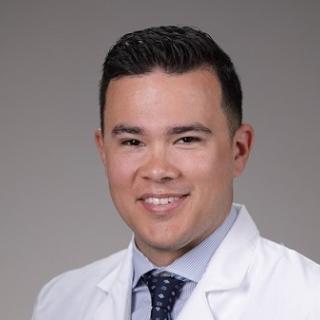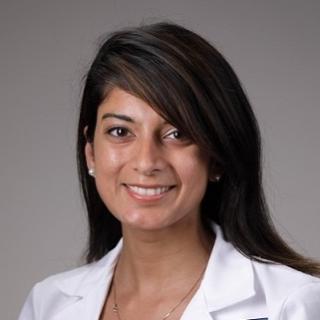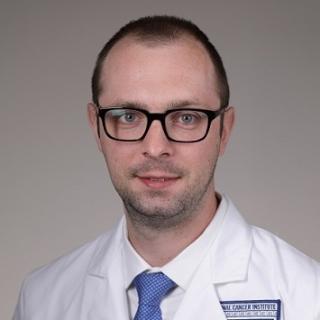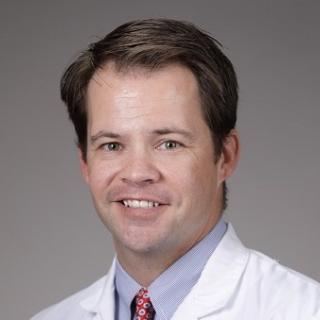Our fellows conduct translational research under the direction of world leaders in surgical oncology.
Surgical Oncology Research Fellowship
Surgical Oncology Program, National Cancer Institute
Surgical Oncology Research Fellowship
About
The Surgical Oncology Research Fellowship at the National Cancer Institute
The Surgical Oncology Research Fellowship at the National Cancer Institute is a fully-funded, 2- or 3-year program designed to educate and develop future leaders in the field of Surgical Oncology. The fellowship connects fundamental basic science research in cancer biology to translational studies in patients and patient-derived tissues.
Fellowship training involves three components:
- Focused laboratory-based and clinical research in cancer biology, particularly related to surgical aspects of the disease
- Formal didactic teaching in modern cancer biology, including the molecular basis of cancer and mechanisms of current cancer therapies
- Operative clinical rotations in key surgical oncology subspecialties
Research Component
This includes 18 months of bench laboratory experience in one of the many NCI laboratories with the option to extend for an additional year. In addition, Fellows participate in clinical research projects and have first-hand exposure to the design and conduct of clinical trials, including statistical analysis of clinical data.
Previous Surgical Oncology Research Fellows have gained experiences in the following research tracks, among others:
- Surgical Oncology: Metastasis biology modeling and analysis, hereditary diffuse gastric cancer syndrome, wild-type gastrointestinal stromal tumors
- Thoracic Surgery: Epigenetics of thoracic malignancies, tumor predisposition syndrome, microRNA therapeutics for mesothelioma
- Endocrine Surgery: Adrenocortical cancer modeling and analysis, neuroendocrine tumor and carcinoma imaging and targeting
Didactic Component
All Fellows participate in a formal didactic lecture and discussion curriculum, Foundations of Modern Cancer Biology, designed to quickly bring surgical residents up to speed in understanding the current state of molecular oncology. The curriculum covers current and historical breakthroughs in cancer and cancer treatment through a series of lectures and literature-based discussions, focusing on experimental methods and data interpretation in tumor types of particular interest to surgical oncologists. A summary of the course content can be found here.
Clinical Component
This includes operative rotations in the areas of gastrointestinal, hepatobiliary, endocrine, thoracic, and peritoneal surface and gynecologic malignancies. Fellows actively participate in all aspects of patient care including conducting the pre-operative evaluation, performing the operative procedure, and providing post-operative care and subsequent outpatient follow-up. In addition to daily rounds with the attending surgeons, clinical training is further enhanced by a series of weekly conferences including multidisciplinary molecular-based tumor boards, a weekly clinical service meeting, a diverse array of talks on the latest topics in cancer and biomedical science in general by some of the world’s most outstanding scientists through lecture series and Grand Rounds held across the entire NIH campus.
Expectations
At the conclusion of their laboratory, clinical, and didactic training, Fellows will be able to:
- Identify critically important questions in surgical oncology
- Independently design, perform, and interpret experiments and their results to directly address these questions
- Attain mastery in oral and written communication of both scientific research and clinical patient management.
Graduates of the Fellowship are expected to become the next generation of leaders in Surgical Oncology
Training at the NIH Clinical Center
All CCR residents and clinical fellows train at the 240-bed NIH Clinical Center, internationally recognized as the premier hospital dedicated to translational research and clinical care. Clinical rotations offer fellows the opportunity to have direct experience in the care of patients enrolled in investigational oncology-related treatment protocols. Participants will have first-hand exposure to the design, conduct, and management of clinical trials.
All of CCR’s clinical training programs are part of Graduate Medical Education at NIH.
Contacts
Fellowship Program Director
Andrew M. Blakely, M.D.
Program Administrator
Ms. Joanna Lamot
Ph: 240.858.3731
How to Apply
Surgical Oncology Research Fellowship applications are accepted from August 1st through November 1st each year. Matriculants to the fellowship start on July 1st of the following year. A statement of interest in the program, curriculum vitae, and at least two (2) if not three (3) letters of recommendation should be sent directly to the Program Administrator.
Alternatively, interested applicants may submit materials through the NIH Graduate Medical Education page; if using this system, the applicant should contact the Program Administrator to ensure that application materials have been received.
Applications will be reviewed by faculty from both the Surgical Oncology Program and the Surgery Branch. Joint interviews are offered in the fall of each year.
Please contact the Program Administrator, Joanna Lamot, for additional information.
Fellows
Didactics
Multiple educational conferences highlighting the principles of clinical research are integrated throughout the fellowship experience.
Surgical Oncology Fellows’ Educational Conference - Weekly lecture series throughout the academic year with presentations from NCI faculty addressing the fundamentals of clinical study design and interpretation, design and progress of current NCI clinical trials, and fellow-led debates on current questions in surgical oncology.
Weekly Clinical Conference - Weekly departmental meeting similar to Grand Rounds as well as Morbidity/Mortality conference focusing on clinical management and translational and basic science correlates of challenging cases of the NCI Surgical Oncology Clinical Service.
Surgical Oncology Clinical Research Meeting - Quarterly clinical research think-tank focused on the development and support of clinical research projects for fellows.
Multidisciplinary Oncology Meetings
Multiple clinically and translationally oriented meetings focus on care of complex general surgical oncology, thoracic and endocrine diseases:
- NIH Foregut Team manages patients with tumors of the gastrointestinal and hepatopancreaticobiliary tracts
- Thoracic Tumor Board
- Endocrine Oncology Tumor Board
NIH-Wide Lecture and Educational Opportunities
Diverse, NIH-wide lecture series focusing on basic science, translational and clinical work as well as traditional classroom educational opportunities in basic and clinical science available through the NIH Graduate School.
Publications
2024
PMID: 38583771. Shukla V, Wang H, Varticovski L, Baek S, Wang R, Wu X, Echtenkamp F, Hernandez FV, Prothro KP, Gara SK, Zhang MR, Shiffka S, Raziuddin R, Neckers LM, Linehan WM, Chen H, Hager GL, Schrump DS. Genome-wide Analysis Identifies Nuclear Factor 1C as a Novel Transcription Factor and Potential Therapeutic Target in Small Cell Lung Cancer. J Thorac Oncol. 2024 Apr 5:S1556-0864(24)00131-X.
PMID: 38398093. Carr SR, Villa Hernandez F, Varghese DG, Choo-Wosoba H, Steinberg SM, Teke ME, Del Rivero J, Schrump DS, Hoang CD. Pulmonary Metastasectomy for Adrenocortical Carcinoma-Not If, but When. Cancers (Basel). 2024 Feb 7;16(4):702.
PMID: 38280378. Revsine M, Wang L, Forgues M, Behrens S, Craig AJ, Liu M, Tran B, Kelly M, Budhu A, Monge C, Xie C, Hernandez JM, Greten TF, Wang XW, Ma L. Lineage and ecology define liver tumor evolution in response to treatment. Cell Rep Med. 2024 Feb 20;5(2):101394.
PMID: 37980571. Craig AJ, Silveira MAD, Ma L, Revsine M, Wang L, Heinrich S, Rae Z, Ruchinskas A, Dadkhah K, Do W, Behrens S, Mehrabadi FR, Dominguez DA, Forgues M, Budhu A, Chaisaingmongkol J, Hernandez JM, Davis JL, Tran B, Marquardt JU, Ruchirawat M, Kelly M, Greten TF, Wang XW. Genome-wide profiling of transcription factor activity in primary liver cancer using single-cell ATAC sequencing. Cell Rep. 2023 Nov 28;42(11):113446.
PMID: 37936022. Behrens S, Lillemoe HA, Dineen SP, Russell MC, Visser B, Berman RS, Farma JM, Grubbs E, Davis JL. Perceptions of Readiness for Practice After Complex General Surgical Oncology Fellowship: A Survey Study. Ann Surg Oncol. 2024 Jan;31(1):31-41.
PMID: 37925632. Samaranayake SG, Gamble LA, Bowden C, Green BL, Gallanis AF, Akbulut D, Shah N, Hernandez JM, Davis JL. Protocol for isolation of signet ring cells from human gastric mucosa. STAR Protoc. 2023 Dec 15;4(4):102695.
PMID: 37903316. Gallanis AF, Gamble LA, Samaranayake SG, Lopez R, Rhodes A, Rajasimhan S, Fasaye GA, Juma O, Connolly M, Joyce S, Berger A, Heller T, Blakely AM, Hernandez JM, Davis JL. Costs of Cancer Prevention: Physical and Psychosocial Sequelae of Risk-Reducing Total Gastrectomy. J Clin Oncol. 2024 Feb 1;42(4):421-430.
2023
PMID 37758801. Gamble LA, McClelland PH, Teke ME, Samaranayake SG, Juneau P, Famiglietti AL, Blakely AM, Redd B, Davis JL. Defining features of hereditary lobular breast cancer due to CDH1 with magnetic resonance imaging and tumor characteristics. NPJ Breast Cancer. 2023 Sep 27;9(1):77.
PMID: 37707375. Green BL, Gamble LA, Diggs LP, Nousome D, Patterson JC, Joughin BA, Gasmi B, Lux SC, Samaranayake SG, Miettinen M, Quezado M, Hernandez JM, Yaffe MB, Davis JL. Early Immune Changes Support Signet Ring Cell Dormancy in CDH1-Driven Hereditary Diffuse Gastric Carcinogenesis. Mol Cancer Res. 2023 Dec 1;21(12):1356-1365.
PMID: 37568572. Forsythe SD, Pu T, Andrews SG, Madigan JP, Sadowski SM. Models in Pancreatic Neuroendocrine Neoplasms: Current Perspectives and Future Directions. Cancers (Basel). 2023 Jul 25;15(15):3756.
PMID: 37453816. McDonald HG, Sarvestani AL, Owen JW, Rueckert J, Wierman ME, Kiseljak-Vassiliades K, Pandalai PK, Ellis CS, Patel RA, Del Rivero J, Hernandez JM, Cavnar MJ. Response of adrenocortical carcinoma liver metastases to hepatic artery infusion floxuridine. HPB (Oxford). 2023 Nov;25(11):1446-1449.
PMID: 37450696. Grant RRC, Moroz BE, Nilubol C, Cahoon EK, Pfeiffer RM, Nilubol N. Parathyroidectomy and the Risk of Major Cerebrovascular and Cardiovascular Events in the Elderly. Ann Surg. 2023 Dec 1;278(6):1032-1037.
PMID: 37303221. Gregory SN, Davis JL. CDH1 and hereditary diffuse gastric cancer: a narrative review. Chin Clin Oncol. 2023 Jun;12(3):25.
PMID: 37288292. Zenno A, Ramamoorthy B, Hammoud DA, Quezado M, Zeiger MA, Jha S. Case Report: Nine-year-old with parathyroid adenoma within the piriform sinus. Front Endocrinol (Lausanne). 2023 May 23;14:1171052.
PMID 36990610. Asif B, Sarvestani AL, Gamble LA, Samaranayake SG, Famiglietti AL, Fasaye GA, Quezado M, Miettinen M, Korman L, Koh C, Heller T, Davis JL. Cancer surveillance as an alternative to prophylactic total gastrectomy in hereditary diffuse gastric cancer: a prospective cohort study. Lancet Oncol. 2023 Apr;24(4):383-391.
PMID 36977191. Gallanis AF, Davis JL. Unique challenges of risk-reducing surgery for hereditary diffuse gastric cancer syndrome: a narrative review. Eur J Cancer Prev. 2023 Mar 27.
PMID 36950857. Gamble LA, Lopez R, Rajasimhan S, Samaranayake SG, Bowden C, Famiglietti AL, Blakely AM, Jha S, Ahlman MA, Davis JL. Micronutrient Supplementation and Bone Health After Prophylactic Total Gastrectomy in Patients With CDH1 Variants. J Clin Endocrinol Metab. 2023 Mar 23:dgad137.
PMID 36925188. Ramamoorthy B, Nilubol N. Multiple Endocrine Neoplasia Type 1 Syndrome Pancreatic Neuroendocrine Tumor Genotype/Phenotype: Is There Any Advance on Predicting or Preventing? Surg Oncol Clin N Am. 2023 Apr;32(2):315-325.
PMID 36915446. Teke ME, Choi A, Sarvestani AL, Blakely AM, Carr SR. An unusual paraesophageal and diaphragmatic SDHA-deficient gastrointestinal stromal tumor (GIST) metastases case report. J Gastrointest Oncol. 2023 Feb 28;14(1):429-434.
PMID 36776716. Passi M, Gamble LA, Samaranayake SG, Schueler SA, Curtin BF, Fasaye GA, Bowden C, Gurram S, Quezado M, Miettinen M, Koh C, Heller T, Davis JL. Association of CDH1 Germline Variants and Colon Polyp Phenotypes in Patients with Hereditary Diffuse Gastric Cancer. Gastro Hep Adv. 2023;2(2):244-251.
PMID 36694330. Goretti Riça I, Joughin BA, Teke ME, Emmons TR, Griffith AM, Cahill LA, Banner-Goodspeed VM, Robson SC, Hernandez JM, Segal BH, Otterbein LE, Hauser CJ, Lederer JA, Yaffe MB. Neutrophil heterogeneity and emergence of a distinct population of CD11b/CD18-activated low-density neutrophils after trauma. J Trauma Acute Care Surg. 2023 Feb 1;94(2):187-196.
2022
PMID 36512331. Behrens S, Wang XW. Dissecting Intratumor Heterogeneity in HCC: New Research Strategies & Clinical Implications. Carcinogenesis. 2022 Dec 13;bgac099.
PMID 36476645. Ma L, Heinrich S, Wang L, Keggenhoff FL, Khatib S, Forgues M, Kelly M, Hewitt SM, Saif A, Hernandez JM, Mabry D, Kloeckner R, Greten TF, Chaisaingmongkol J, Ruchirawat M, Marquardt JU, Wang XW. Multiregional single-cell dissection of tumor and immune cells reveals stable lock-and-key features in liver cancer. Nat Commun 2022 Dec 7;13(1):7533.
PMID 36456359. Villa Hernandez F, Tolunay UT, Demblowski LA, Wang H, Carr SR, Hoang CD, Choo-Wosoba H, Steinberg SM, Zeiger MA, Schrump DS. Current status of National Institutes of Health funding for thoracic surgeons in the United States: Beacon of hope or candle in the wind? J Thorac Cardiovasc Surg. 2022 Oct 15;S0022-5223(22)01126-6.
PMID 36348206. Green BL, Blumenthaler AN, Gamble LA, McDonald JD, Robinson K, Connolly M, Epstein M, Hernandez JM, Blakely AM, Badgwell BD, Davis JL. Cytoreduction and HIPEC for Gastric Carcinomatosis: Multi-institutional Analysis of Two Phase II Clinical Trials. Ann Surg Oncol. 2022 Nov 8.
PMID 36266134. Demblowski LA, Khan TM, Zeiger MA. Endocrine surgery and the surgeon-scientist: Bridging the gap between a rich history and a bright future. Am J Surg. 2022 Oct 7:S0002-9610(22)00637-7.
PMID 36260312. Saif A, Demblowski LA, Blakely AM, Zeiger MA. Current Status of National Institutes of Health Research Funding for Women Surgeon-Scientists. JAMA Surg. 2022 Dec 1;157(12):1134-1140.
PMID 36246616. Green BL, Fasaye GA, Samaranayake SG, Duemler A, Gamble LA, Davis JL. Frequent cleft lip and palate in families with pathogenic germline CDH1 variants. Front Genet. 2022 Sep 28;13:1012025.
PMID 36181515. Hedges EA, Khan TM, Teke M, Wach MM, Hernandez JM, Hoover SJ. Breast Surgical Oncology Fellowship applicant selection and ranking: A survey of Society of Surgical Oncology programs. J Surg Oncol. 2023 Jan;127(1):34-39.
PMID 36171577. Gregory SN, Satterwhite AA, Alexander HR, Blakely AM. Desmoid-type fibromatosis in the setting of malignant peritoneal mesothelioma: a case report of two rare diseases. World J Surg Oncol. 2022 Sep 28;20(1):317.
PMID 36151566. Laha D, Grant RRC, Mishra P, Boufraqech M, Shen M, Zhang YQ, Hall MD, Quezado M, De Melo MS, Del Rivero J, Zeiger M, Nilubol N. Preclinical assessment of synergistic efficacy of MELK and CDK inhibitors in adrenocortical cancer. J Exp Clin Cancer Res. 2022 Sep 23;41(1):282.
PMID 36061260. Gregory SN, Sarvestani AL, Blakely AM. Malignant peritoneal mesothelioma literature review: past, present, and future. Dig Med Res. 2022 Jun;5:29.
PMID 36055226. Ma C, Fu Q, Diggs LP, McVey JC, McCallen J, Wabitsch S, Ruf B, Brown Z, Heinrich B, Zhang Q, Rosato U, Wang S, Cui L, Berzofsky JA, Kleiner DE, Bosco DB, Wu LJ, Lai CW, Rotman Y, Xie C, Korangy F, Greten TF. Platelets control liver tumor growth through P2Y12-dependent CD40L release in NAFLD. Cancer Cell. 2022 Aug 18:S1535-6108(22)00368-3.
PMID 35999087. Hedges EA, Khan TM, Babic B, Nilubol N. Predictors of post-operative pancreatic fistula formation in pancreatic neuroendocrine tumors: A national surgical quality improvement program analysis. Am J Surg. 2022 Aug 10:S0002-9610(22)00452-4.
PMID 35882695. Teke ME, Gamble LA, Samaranayake SG, Green BL, Saif A, Hernandez JM, Davis JL. Soluble E-Cadherin as a Potential Biomarker in Hereditary Diffuse Gastric Cancer Syndrome. Ann Surg Oncol. 2022 Jul 26.
PMID 35861986. Green BL, Grant RRC, Richie CT, Chatterjee B, Sampaio De Melo M, Barr FG, Pacak K, Agarwal SK, Nilubol N. Novel GLCCI1-BRAF fusion drives kinase signaling in a case of pheochromocytomatosis. Eur J Endocrinol. 2022 Jul 1;187(1):185-196.
PMID 35835627. Saif A, Demblowski LA, Blakely AM, Zeiger MA. NIH Funding Across Surgical Specialties; How Do Women Fare? Surgery. 2022 Sep;172(3):890-896.
PMID 35817563. Gamble LA, Grant RRC, Samaranayake SG, Fasaye GA, Koh C, Korman L, Asif B, Heller T, Hernandez JM, Blakely AM, Davis JL. Decision-making and regret in patients with germline CDH1 variants undergoing prophylactic total gastrectomy. J Med Genet. 2022 Jul 11:jmedgenet-2022-108733.
PMID 35815114. Green BL, Davis JL. Gastric adenocarcinoma peritoneal carcinomatosis: a narrative review. Dig Med Res. 2022 Jun;5:37.
PMID 35698854. Grant RRC, Khan TM, Gregory SN, Coakley BA, Hernandez JM, Davis JL, Blakely AM. Adjuvant chemotherapy is associated with improved overall survival in select patients with Stage II colon cancer: A National Cancer Database analysis. J Surg Oncol. 2022 Sep;126(4):748-756.
PMID 35388076. Khan TM, Verbus EA, Rossi AJ, Hernandez JM, Davis JL, Coakley BA, Blakely AM. Patient demographics, clinicopathologic features, and outcomes in wild-type gastrointestinal stromal tumor: a national cohort analysis. Sci Rep. 2022 Apr 6;12(1):5774.
PMID 35378172. Wabitsch S, McCallen JD, Kamenyeva O, Ruf B, McVey JC, Kabat J, Walz JS, Rotman Y, Bauer KC, Craig AJ, Pouzolles M, Phadke I, Catania V, Green BL, Fu C, Diggs LP, Heinrich B, Wang XW, Ma C, Greten TF. Metformin treatment rescues CD8 + T-cell response to immune checkpoint inhibitor therapy in mice with NAFLD. J Hepatol. 2022 Sep;77(3):748-760.
PMID 35198900. McVey JC, Green BL, Ruf B, McCallen JD, Wabitsch S, Subramanyam V, Diggs LP, Heinrich B, Greten TF, Ma C. NAFLD indirectly impairs antigen-specific CD8 + T cell immunity against liver cancer in mice. iScience. 2022 Feb 1;25(2):103847.
PMID 34944814. Mishra P, Laha D, Grant R, Nilubol N. Advances in Biomarker-Driven Targeted Therapies in Thyroid Cancer. Cancers (Basel). 2021 Dec 9;13(24):6194.
PMID 34798984. Gamble LA, Davis JL. Surveillance and Surgical Considerations in Hereditary Diffuse Gastric Cancer. Gastrointest Endosc Clin N Am. 2022 Jan;32(1):163-175.
PMID 34643667. Gamble LA, Rossi A, Fasaye GA, Kesserwan C, Hernandez JM, Blakely AM, Davis JL. Association Between Hereditary Lobular Breast Cancer Due to CDH1 Variants and Gastric Cancer Risk. JAMA Surg. 2022 Jan 1;157(1):18-22.
2021
PMID 34897212. Hagerty BL, Aversa JG, Dominguez DA, Davis JL, Hernandez JM, McCormick JT, Blakely AM. Age Determines Adjuvant Chemotherapy Use in Resected Stage II Colon Cancer. Dis Colon Rectum. 2021 Dec 9:10.1097/DCR.0000000000002074.
PMID 34763675. Schäffer AA, Dominguez DA, Chapman LM, Gertz EM, Budhu A, Forgues M, Chaisaingmongkol J, Rabibhadana S, Pupacdi B, Wu X, Bayarsaikhan E, Harris CC, Ruchirawat M, Ruppin E, Wang XW. Integration of adeno-associated virus (AAV) into the genomes of most Thai and Mongolian liver cancer patients does not induce oncogenesis. BMC Genomics. 2021 Nov 11;22(1):814.
PMID 34586369. Seastedt KP, Alyateem GA, Pittala K, Steinberg SM, Schrump DS, Nieman LK, Hoang CD. Characterization of Outcomes by Surgical Management of Lung Neuroendocrine Tumors Associated With Cushing Syndrome. JAMA Netw Open. 2021 Sep 1;4(9):e2124739.
PMID 34340996. Heinrich B, Gertz EM, Schäffer AA, Craig A, Ruf B, Subramanyam V, McVey JC, Diggs LP, Heinrich S, Rosato U, Ma C, Yan C, Hu Y, Zhao Y, Shen TW, Kapoor V, Telford W, Kleiner DE, Stovroff MK, Dhani HS, Kang J, Fishbein T, Wang XW, Ruppin E, Kroemer A, Greten TF, Korangy F. The tumour microenvironment shapes innate lymphoid cells in patients with hepatocellular carcinoma. Gut. 2021 Aug 2:gutjnl-2021-325288.
PMID 34326133. Location of Gastrointestinal Stromal Tumor (GIST) in the Stomach Predicts Tumor Mutation Profile and Drug Sensitivity. Sharma AK, De la Torre J, IJzerman NS, Sutton TL, Zhao B, Khan TM, Banerjee S, Cui C, Nguyen V, Alkhuziem M, Snaebjornsson P, Van Boven H, Bruining A, Tang CM, Yoon H, De la Fuente A, Kato S, Patel H, Heinrich MC, Corless CL, Horgan S, Burgoyne AM, Fanta P, Mesirov JP, Blakely AM, Davis JL, Mayo SC, van Houdt WJ, Steeghs N, Sicklick JK. Location of Gastrointestinal Stromal Tumor (GIST) in the Stomach Predicts Tumor Mutation Profile and Drug Sensitivity. Clin Cancer Res. 2021 Oct 1;27(19):5334-5342.
PMID 34315768. Hagerty B, O'Sullivan TN, Zhang X, Collins NK, Lawrence WC, Bassel LL, Pate N, Xu J, Guerin TM, Kozlov S, Alewine C. Novel humanized mesothelin-expressing genetically engineered mouse models underscore challenges in delivery of complex therapeutics to pancreatic cancers. Mol Cancer Ther. 2021 Jul 26:molcanther.0017.2021.
PMID 34216724. Ma L, Wang L, Khatib SA, Chang CW, Heinrich S, Dominguez DA, Forgues M, Candia J, Hernandez MO, Kelly M, Zhao Y, Tran B, Hernandez JM, Davis JL, Kleiner DE, Wood BJ, Greten TF, Wang XW. Single-cell atlas of tumor cell evolution in response to therapy in hepatocellular carcinoma and intrahepatic cholangiocarcinoma. J Hepatol. 2021 Jun 30:S0168-8278(21)01848-1.
PMID 34193462. Ruf B, Catania VV, Wabitsch S, Ma C, Diggs LP, Zhang Q, Heinrich B, Subramanyam V, Cui LL, Pouzolles M, Evans CN, Chari R, Sakai S, Oh S, Barry CE III, Barber DL, Greten TF. Activating Mucosal-Associated Invariant T Cells Induces a Broad Antitumor Response. Cancer Immunol Res. 2021 Jun 30.
PMID 34137798. Hedges EA, Hoang CD. Typical Kidney Tumor With Atypical Presentation. JAMA Oncol. 2021 Jun 17.
PMID 34103707. C Van Alsten S, Aversa JG, Santo L, Constanza Camargo M, Kemp T, Liu J, Huang WY, Sampson J, Rabkin CS. Association between ABO and Duffy blood types and circulating chemokines and cytokines. Genes Immun. 2021 Jul;22(3):161-171.
PMID 34088830. Surman DR, Xu Y, Lee MJ, Trepel J, Brown K, Ramineni M, Splawn TG, Diggs LP, Hodges HC, Davis JL, Lee HS, Burt BM, Ripley RT. Therapeutic Synergy in Esophageal Cancer and Mesothelioma Is Predicted by Dynamic BH3 Profiling. Mol Cancer Ther. 2021 Aug;20(8):1469-1480.
PMID 34033968. Wabitsch S, Tandon M, Ruf B, Zhang Q, McCallen JD, McVey JC, Ma C, Green BL, Diggs LP, Heinrich B, Greten TF. Anti-PD-1 in Combination With Trametinib Suppresses Tumor Growth and Improves Survival of Intrahepatic Cholangiocarcinoma in Mice. Cell Mol Gastroenterol Hepatol. 2021 May 23:S2352-345X(21)00100-4.
PMID 34012620. Schueler SA, Gamble LA, Curtin BF, Ruff SM, Connolly M, Hannah C, Quezado M, Miettinen M, George M, Blakely AM, Hernandez JM, Heller T, Koh C, Davis JL. Evaluation of confocal laser endomicroscopy for detection of occult gastric carcinoma in CDH1 variant carriers. J Gastrointest Oncol. 2021 Apr;12(2):216-225.
PMID 34012568. Diggs LP, Martin SP, Drake JA, Ripley RT. Video-assisted thoracoscopic surgery pleurectomy: a suitable alternative for treating malignant pleural effusions. J Thorac Dis. 2021 Apr;13(4):2177-2183.
PMID 34004296. Choi AY, Hoang CD. Commentary: Fibroblasts are Incredible and Versatile - Like the Edible Egg? Semin Thorac Cardiovasc Surg. 2021 May 15:S1043-0679(21)00241-0.
PMID 33986746. Laha D, Grant R, Mishra P, Nilubol N. The Role of Tumor Necrosis Factor in Manipulating the Immunological Response of Tumor Microenvironment. Front Immunol. 2021 Apr 27;12:656908.
PMID 33939050. Dominguez DA, Chatani P, Murphy R, Copeland AR, Chang R, Sadowski SM, Hannah-Shmouni F, Stratakis CA, Nilubol N. Contralateral Suppression Index Does Not Predict Clinical Cure in Patients Undergoing Surgery for Primary Aldosteronism. Ann Surg Oncol. 2021 May 3.
PMID 33933279. Aversa JG, Chatani PD, Copeland AR, Blakely AM, Davis JL, Nilubol N, Babic B, Hernandez JM. The impact of level II evidence on surgical practice: Dual agent bowel prep for elective colorectal surgery. Surgery. 2021 Apr 28:S0039-6060(21)00234-8.
PMID 33932537. Copeland AR, Shindorf ML, McDonald JD, Hernandez JM, Davis JL, Margolin KA, Blakely AM. Tumor-infiltrating lymphocytes are associated with improved survival in node-positive Merkel cell carcinoma: A national cohort analysis. J Am Acad Dermatol. 2021 Apr 29:S0190-9622(21)00919-1.
PMID 33836455. Torres MB, Diggs LP, Wei JS, Khan J, Miettinen M, Fasaye GA, Gillespie A, Widemann BC, Kaplan RN, Davis JL, Hernandez JM, Rivero JD. Ataxia telangiectasia mutated germline pathogenic variant in adrenocortical carcinoma. Cancer Genet. 2021 Aug;256-257:21-25.
PMID 33819849. Chatani PD, Dominguez DA, Aversa JG, Davis JL, Hernandez JM, Lai LL, Blakely AM. Local excision and chemoradiation for clinical node-negative anal adenocarcinoma. Surg Oncol. 2021 Jun;37:101551.
PMID 33814188. Chatani PD, Aversa JG, McDonald JD, Khan TM, Keutgen XM, Nilubol N. Preoperative serum chromogranin-a is predictive of survival in locoregional jejuno-ileal small bowel neuroendocrine tumors. Surgery. 2021 Jul;170(1):106-113.
PMID 33732213. Alyateem G, Nilubol N. Current Status and Future Targeted Therapy in Adrenocortical Cancer. Front Endocrinol (Lausanne). 2021 Mar 1;12:613248.
PMID 33721134. Chatani PD, Dominguez DA, Nilubol N. ASO Author Reflections: Predicting Postoperative Resolution of Hypertension in Primary Hyperaldosteronism. Ann Surg Oncol. 2021 Mar 15.
PMID 33674593. Hung MH, Lee JS, Ma C, Diggs LP, Heinrich S, Chang CW, Ma L, Forgues M, Budhu A, Chaisaingmongkol J, Ruchirawat M, Ruppin E, Greten TF, Wang XW. Tumor methionine metabolism drives T-cell exhaustion in hepatocellular carcinoma. Nat Commun. 2021 Mar 5;12(1):1455.
PMID 33537001. Chatani PD, Agarwal SK, Sadowski SM. Molecular Signatures and Their Clinical Utility in Pancreatic Neuroendocrine Tumors. Front Endocrinol (Lausanne). 2021 Jan 18;11:575620.
2020
PMID 33490900. Wabitsch S, McVey JC, Ma C, Ruf B, Kamenyeva O, McCallen JD, Diggs LP, Heinrich B, Greten TF. Hydroxychloroquine can impair tumor response to anti-PD1 in subcutaneous mouse models. iScience. 2020 Dec 26;24(1):101990.
PMID 33404644. Gamble LA, Heller T, Davis JL. Hereditary Diffuse Gastric Cancer Syndrome and the Role of CDH1: A Review. JAMA Surg. 2021 Apr 1;156(4):387-392.
PMID 33378696. Drake JA, Diggs LP, Martin SP, Wach MM, Jafferji MS, Steinberg SM, Blakely AM, Davis JL, Hoang CD, Ripley RT, Hernandez JM. Characteristics of Matriculants to Thoracic Surgery Residency Training Programs. Ann Thorac Surg. 2020 Dec 27;S0003-4975(20)32175-5.
PMID 33345554. Diggs LP, Aversa JG, Wiemken TL, Martin SP, Drake JA, Ruff SM, Wach MM, Brown ZJ, Blakely AM, Davis JL, Luu C, Hernandez JM. Patient Comorbidities Drive High Mortality Rates Associated with Major Liver Resections Irrespective of Hospital Volume. Am Surg. 2020 Dec 19.
PMID 33323397. Zhang Q, Ma C, Duan Y, Heinrich B, Rosato U, Diggs LP, Ma L, Roy S, Fu Q, Brown ZJ, Wabitsch S, Thovarai V, Fu J, Feng D, Ruf B, Cui LL, Subramanyam V, Frank KM, Wang S, Kleiner DE, Ritz T, Rupp C, Gao B, Longerich T, Kroemer A, Wang XW, Ruchirawat M, Korangy F, Schnabl B, Trinchieri G, Greten TF. Gut microbiome directs hepatocytes to recruit MDSC and promote cholangiocarcinoma. Cancer Discov. 2020 Dec 15:CD-20-0304.
PMID 33315718. Shindorf ML, Copeland AR, Gupta S, Steinberg SM, Steele SR, Yeo HL, Sanchez JA, Hernandez JM. Evaluation of Factors Associated with Successful Matriculation to Colon and Rectal Surgery Fellowship. Dis Colon Rectum. 2020 Dec 2.
PMID 33276030. Diggs LP, Ruf B, Ma C, Heinrich B, Cui L, Zhang Q, McVey JC, Wabitsch S, Heinrich S, Rosato U, Lai W, Subramanyam V, Longerich T, Loosen SH, Luedde T, Neumann UP, Desar S, Kleiner D, Gores G, Wang XW, Greten TF. CD40-mediated immune cell activation enhances response to anti-PD1 in murine intrahepatic cholangiocarcinoma. J Hepatol. 2020 Dec 1:S0168-8278(20)33824-1.
PMID 33220657. Sacco K, Khan TM, Passi M, Hernandez JM, Komarow H. Pancreatic Neuroendocrine Tumor Presenting in Indolent Systemic Mastocytosis: A Case Report. Int J Surg Case Rep. 2020 Nov 10;77:397-402.
PMID 33206267. Curtin BF, Gamble LA, Schueler SA, Ruff SM, Quezado M, Miettinen M, Fasaye GA, Passi M, Hernandez JM, Heller T, Koh C, Davis JL. Enhanced Endoscopic Detection of Occult Gastric Cancer in Carriers of Pathogenic CDH1 Variants. J Gastroenterol. 2020 Nov 18.
PMID 33162941. Khan TM, Zeiger MA. Thyroid Nodule Molecular Testing: Is It Ready for Prime Time?. Front Endocrinol (Lausanne). 2020 Oct 9;11:590128.
PMID 33057943. Hagerty BL, Torres MB, Drake J, Hernandez JM, Mullinax JE, Blakely AM, Davis JL. Trends and Predictors of Failure of Minimally Invasive Surgery for Gastric GIST. J Gastrointest Surg. 2020 Oct 15.
PMID 33010248. Heinrich B, Brown ZJ, Diggs LP, Vormehr M, Ma C, Subramanyam V, Rosato U, Ruf B, Walz JS, McVey JC, Wabitsch SF, Fu Q, Yu SJ, Zhang Q, Lai CW, Sahin U, Greten TF. Steatohepatitis Impairs T-cell-Directed Immunotherapies Against Liver Tumors in Mice. Gastroenterology. 2020 Oct 1:S0016-5085(20)35212-4.
PMID 32943182. McDonald JD, Gupta S, Shindorf ML, Copeland A, Good ML, Sadowski SM, Nilubol N. Pancreatic insufficiency following pancreatectomy: Does underlying tumor syndrome confer a greater risk? Am J Surg. 2020 Sep 5:S0002-9610(20)30540-7.
PMID 32783204. Dominguez DA, Aversa JG, Hagerty BL, Diggs LP, Raoof M, Davis JL, Hernandez JM, Blakely AM. Prognostic Impact of Lymphovascular Invasion in pT1-T3 Gallbladder Adenocarcinoma. J Surg Oncol. 2020 Dec;122(7):1401-1408.
PMID 32780245. Avula LR, Hagerty BL, Alewine C. Molecular Mediators of Peritoneal Metastasis in Pancreatic Cancer. Cancer Metastasis Rev. 2020 Dec;39(4):1223-1243.
PMID 32770824. Nasir N, Monroe CE, Hagerty BL, Quezado MM, Roth MJ, Schrump DS, Filie AC, Agrawal T. Adenoid cystic carcinoma of the salivary gland metastasizing to the pericardium and diaphragm: Report of a rare case. Diagn Cytopathol. 2021 Jan;49(1):E31-E35.
PMID 32705611. Aversa JG, Diggs LP, Hagerty BL, Dominguez DA, Ituarte PHG, Hernandez JM, Davis JL, Blakely AM. Multivisceral Resection for Locally Advanced Gastric Cancer. J Gastrointest Surg. 2020 Jul 23.
PMID 32703677. Hagerty BL, Aversa JG, Diggs LP, Dominguez DA, Ayabe RI, Blakely AM, Davis JL, Luu C, Hernandez JM. Characterization of alveolar soft part sarcoma using a large national database. Surgery. 2020 Nov;168(5):825-830.
PMID 32698142. Wiseman D, McDonald JD, Patel D, Kebebew E, Pacak K, Nilubol N. Epidural Anesthesia and Hypotension in Pheochromocytoma and Paraganglioma. Endocr Relat Cancer. 2020 Sep;27(9):519-527.
PMID 32605175. Hagerty BL, Pegna GJ, Xu J, Tai CH, Alewine C. Mesothelin-Targeted Recombinant Immunotoxins for Solid Tumors. Biomolecules. 2020 Jun 28;10(7):973.
PMID 32510655. Ayabe RI, Wach MM, Ruff SM, Diggs LP, Martin SP, Wiemken T, Hinyard L, Davis JL, Luu C, Hernandez JM. Gallbladder squamous cell carcinoma: An analysis of 1084 cases from the National Cancer Database. J Surg Oncol. 2020 Jun 8.
PMID 32502310. Zhao N, Dang H, Ma L, Martin SP, Forgues M, Ylaya K, Hewitt SM, Wang XW. Intratumoral γδ T-Cell Infiltrates, CCL4/5 Protein Expression and Survival in Patients with Hepatocellular Carcinoma. Hepatology. 2020 Jun 5.
PMID 32487192. Martin SP, Fako V, Dang H, Dominguez DA, Khatib S, Ma L, Wang H, Zheng W, Wang XW. PKM2 inhibition may reverse therapeutic resistance to transarterial chemoembolization in hepatocellular carcinoma. J Exp Clin Cancer Res. 2020 Jun 3;39(1):99.
PMID 32437494. Aversa JG, Diggs LP, Hagerty BL, Dominguez DA, Luu C, Hernandez JM. Trends of Clinician Adherence to Evidence-Based Recommendations for Multidisciplinary Oncology Care for Patients With Esophageal Cancer. JAMA Oncol. 2020 Aug 1;6(8):1290-1292.
PMID 32422580. Aversa JG, Monroe C, Levi A, Papanicolau-Sengos A, Kleiner DE, Hernandez JM. The First Malignant Primary Hepatic Glomus Tumor: A Case Report. Int J Surg Case Rep. 2020 May 11;70:197-200.
PMID 32399263. Gupta S, McDonald JD, Ayabe RI, Khan TM, Gamble LA, Sinha S, Hannah C, Blakely AM, Davis JL, Hernandez JM. Targeting CA 19-9 With a Humanized Monoclonal Antibody at the Time of Surgery May Decrease Recurrence Rates for Patients Undergoing Resections for Pancreatic Cancer, Cholangiocarcinoma and Metastatic Colorectal Cancer. J Gastrointest Oncol. 2020 Apr;11(2):231-235.
PMID 32362388. Khan TM, Hoang CD. Commentary: Pigmented Spot During Esophagoscopy-A Mole or Melanoma?. J Thorac Cardiovasc Surg. 2020 Apr 13;S0022-5223(20)30785-6.
PMID 32329691. Horibata S, Alyateem G, DeStefano CB, Gottesman MM. The Evolving AML Genomic Landscape: Therapeutic Implications. Curr Cancer Drug Targets. 2020;20(7):532-544.
PMID 32257970. Dominguez DA, Wang XW. Impact of Next-Generation Sequencing on Outcomes in Hepatocellular Carcinoma: How Precise Are We Really?. J Hepatocell Carcinoma . 2020 Mar 19;7:33-37.
PMID 32228502. Aversa JG, De Abreu FB, Yano S, Xi L, Hadley DW, Manoli I, Raffeld M, Sadowski SM, Nilubol N. The First Pancreatic Neuroendocrine Tumor in Li-Fraumeni Syndrome: A Case Report. BMC Cancer. 2020 Mar 30;20(1):256.
PMID 32189170. McDonald JD, Hernandez JM. ASO Author Reflections: Fibrolamellar Hepatocellular Carcinoma and Alpha-Fetoprotein. Ann Surg Oncol. 2020 Jun;27(6):1906-1907.
PMID 32175112. Martin SP, Drake JA, Hernandez JM, Davis JL. Bidirectional Chemotherapy in Patients With Gastric Cancer and Peritoneal Metastasis. J Gastrointest Oncol. 2020 Feb;11(1):108-111.
PMID 32060001. Li D, Li N, Zhang YF, Fu H, Feng M, Schneider D, Su L, Wu X, Zhou J, Mackay S, Kramer J, Duan Z, Yang H, Kolluri A, Hummer AM, Torres MB, Zhu H, Hall MD, Luo X, Chen J, Wang Q, Abate-Daga D, Dropublic B, Hewitt SM, Orentas RJ, Greten TF, Ho M. Persistent Polyfunctional Chimeric Antigen Receptor T Cells That Target Glypican 3 Eliminate Orthotopic Hepatocellular Carcinomas in Mice. Gastroenterology. 2020 Jun;158(8):2250-2265.e20.
PMID 31944498. Good ML, Malekzadeh P, Kriley IR, Shah NN, Kleiner DE, Calvo K, Hernandez JM, Davis JL. Intrahepatic cholangiocarcinoma as a rare secondary malignancy after allogeneic hematopoietic stem cell transplantation for childhood acute lymphoblastic leukemia: A case report. Pediatr Transplant. 2020 Mar;24(2):e13653.
PMID 31941754. Zhang K, Pomyen Y, Barry AE, Martin SP, Khatib S, Knight L, Forgues M, Dominguez DA, Parhar R, Shah AP, Bodzin AS, Wang XW, Dang H. AGO2 mediates MYC mRNA stability in hepatocellular carcinoma. Mol Cancer Res. 2020 Apr;18(4):612-622.
PMID 31925595. McDonald JD, Gupta S, Shindorf ML, Gamble LA, Ruff SM, Drake J, Heller T, Wan JY, Dickson PV, Glazer ES, Davis JL, Deneve JL, Hernandez JM. Elevated Serum α-Fetoprotein is Associated with Abbreviated Survival for Patients with Fibrolamellar Hepatocellular Carcinoma Who Undergo a Curative Resection. Ann Surg Oncol. 2020 Jun;27(6):1900-1905.
2019
PMID 31808558. Lo W, Ayabe RI, Kariya CM, Good ML, Steinberg SM, Davis JL, Ripley RT, Hernandez JM. Stage and disease-free interval help select patients for surgical management of locally recurrent and metastatic adrenocortical carcinoma. J Surg Oncol. 2019 Dec 6.
PMID 31761460. Gupta S, McDonald JD, Wach MM, Badillo AT, Steinberg SM, Davis JL, Kotagal M, Garrison AP, Hernandez JM. Qualities and Characteristics of Applicants Associated with Successful Matriculation to Pediatric Surgery Fellowship Training. J Pediatr Surg. 2019 Nov 9;S0022-3468(19)30792-4.
PMID 31754337. Fako V, Martin SP, Pomyen Y, Budhu A, Chaisaingmongkol J, Franck S, Lee JM, Ng IO, Cheung TT, Wei X, Liu N, Ji J, Zhao L, Liu Z, Jia HL, Tang ZY, Qin LX, Kloeckner R, Marquardt J, Greten T, Wang XW. Gene signature predictive of hepatocellular carcinoma patient response to transarterial chemoembolization. Int J Biol Sci. 2019 Oct 3;15(12):2654-2663.
PMID 31749079. Groh EM, Gupta S, Brown ZJ, Enewold L, Gamble LA, Hernandez JM, Davis JL. Staging Laparoscopy is Underutilized in the Management of Gastric Adenocarcinoma. Ann Surg Oncol. 2020 May;27(5):1473-1479.
PMID 31734237. Ruff SM, Rothermel LD, Diggs LP, Wach MM, Ayabe RI, Martin SP, Boulware D, Anaya D, Davis JL, Mullinax JE, Hernandez JM. Tumor grade may be used to select patients with multifocal hepatocellular carcinoma for resection. HPB (Oxford). 2019 Nov 13;S1365-182X(19)32273-7.
PMID 31671219. Aversa J, Song M, Shimazu T, Inoue M, Charvat H, Yamaji T, Sawada N, Pfeiffer RM, Karimi P, Dawsey SM, Rabkin CS, Tsugane S, Camargo MC. Prediagnostic circulating inflammation biomarkers and esophageal squamous cell carcinoma: A case-cohort study in Japan. Int J Cancer. 2019 Oct 31.
PMID 31588021. Ma L, Hernandez MO, Zhao Y, Mehta M, Tran B, Kelly M, Rae Z, Hernandez JM, Davis JL, Martin SP, Kleiner DE, Hewitt SM, Ylaya K, Wood BJ, Greten TF, Wang XW. Tumor Cell Biodiversity Drives Microenvironmental Reprogramming in Liver Cancer. Cancer Cell. 2019 Oct 14;36(4):418-430.e6.
PMID 31570787. Xu Y, Surman DR, Diggs L, Xi S, Gao S, Gurusamy D, McLoughlin K, Drake J, Feingold P, Brown K, Wangsa D, Wangsa D, Zhang X, Ried T, Davis JL, Hernandez J, Hoang CD, Souza RF, Schrump DS, Ripley RT. Bile acid-induced "Minority MOMP" promotes esophageal carcinogenesis while maintaining apoptotic resistance via Mcl-1. Oncogene. 2020 Jan;39(4):877-890.
PMID 31531722. Good ML, Malekzadeh P, Ruff SM, Gupta S, Copeland A, Pacak K, Nilubol N, Kebebew E, Patel D. Surgical Resection of Pheochromocytomas and Paragangliomas is Associated with Lower Cholesterol Levels. World J Surg. 2020 Feb;44(2):552-560.
PMID 31520211. Ayabe RI, Hernandez JM. ASO Author Reflections: Using Big Data to Overcome the Challenges of Studying a Rare Tumor. Ann Surg Oncol. 2019 Dec;26(Suppl 3):727-728.
PMID 31447392. Ayabe RI, Narayan RR, Ruff SM, Wach MM, Lo W, Nierop PMH, Steinberg SM, Ripley RT, Davis JL, Koerkamp BG, D'Angelica MI, Kingham TP, Jarnagin WR, Hernandez JM. Disease-free interval and tumor functional status can be used to select patients for resection/ablation of liver metastases from adrenocortical carcinoma: insights from a multi-institutional study. HPB (Oxford). 2020 Jan;22(1):169-175.
PMID 31408414. Doran SL, Stevanović S, Adhikary S, Gartner JJ, Jia L, Kwong MLM, Faquin WC, Hewitt SM, Sherry RM, Yang JC, Rosenberg SA, Hinrichs CS. T-Cell Receptor Gene Therapy for Human Papillomavirus-Associated Epithelial Cancers: A First-in-Human, Phase I/II Study. J Clin Oncol. 2019 Oct 20;37(30):2759-2768.
PMID 31345777. Cerise A, Bera TK, Liu X, Wei J, Pastan I. Anti-Mesothelin Recombinant Immunotoxin Therapy for Colorectal Cancer. Clin Colorectal Cancer. 2019 Sep;18(3):192-199.e1.
PMID 31326265. Martin SP, Drake J, Wach MM, Ruff SM, Diggs LP, Wan JY, Good ML, Dominguez DA, Ayabe RI, Glazer ES, Dickson PV, Davis JL, Deneve JL, Hernandez JM. Resection and chemotherapy is the optimal treatment approach for patients with clinically node positive intrahepatic cholangiocarcinoma. HPB (Oxford). 2020 Jan;22(1):129-135.
PMID 31243664. Wach MM, Grubbs EG, D'Angelica M, Hernandez JM. ASO Author Reflections: Complex General Surgical Oncology Fellowships: What Are Programs Looking For? Ann Surg Oncol. 2019 Sep;26(9):2682-2683.
PMID 31222684. Davis JL, Ruff SM. ASO Author Reflections: A Glimpse of Complex General Surgical Oncology Practice After Fellowship. Ann Surg Oncol. 2019 Dec;26(Suppl 3):647-648.
PMID 31205678. Martin SP, Wang XW. The evolving landscape of precision medicine in primary liver cancer. Hepat Oncol. 2019 Jun 4;6(2):HEP12.
PMID 31183189. Ruff S, Curtin B, Quezado M, Heller T, Koh C, Steinberg SM, Connolly M, Hernandez JM, Davis JL. Evaluation of confocal endoscopic microscopy for detection of early-stage gastric cancer in hereditary diffuse gastric cancer (HDGC) syndrome. J Gastrointest Oncol. 2019 Jun;10(3):407-411.
PMID 31164564. Brown ZJ, Heinrich B, Greten TF. Establishment of Orthotopic Liver Tumors by Surgical Intrahepatic Tumor Injection in Mice with Underlying Non-Alcoholic Fatty Liver Disease. Methods Protoc. 2018 Jun 4;1(2).
PMID 31146085. Ruff SM, Ayabe RI, Malekzadeh P, Good ML, Wach MM, Gonzales MK, Tirosh A, Nilubol N, Pacak K, Kebebew E, Patel D. MicroRNA-210 May Be a Preoperative Biomarker of Malignant Pheochromocytomas and Paragangliomas. J Surg Res. 2019 Nov;243:1-7.
PMID 31114057. Diggs LP, Greten TF. The effects of platelet accumulation in fatty liver disease. Nat Rev Gastroenterol Hepatol. 2019 Jul;16(7):393-394.
PMID 31102094. Ayabe RI, Wach M, Ruff S, Martin S, Diggs L, Wiemken T, Hinyard L, Davis JL, Luu C, Hernandez JM. Primary Gallbladder Neuroendocrine Tumors: Insights into a Rare Histology Using a Large National Database. Ann Surg Oncol. 2019 Oct;26(11):3577-3585.
PMID 31044430. Kariya CM, Wach MM, Ruff SM, Ayabe RI, Lo WM, Torres MB, Petrick JL, McNeel TS, Davis JL, McGlynn KA, Hernandez JM. Postbiliary drainage rates of cholangitis are impacted by procedural technique for patients with supra-ampullary cholangiocarcinoma: A SEER-Medicare analysis. J Surg Oncol. 2019 Aug;120(2):249-255.
PMID 31011903. Wach MM, Ayabe RI, Ruff SM, D'Angelica M, Dineen SP, Grubbs EG, Shibata D, Shirley L, Weiss MJ, Davis JL, Hernandez JM. A Survey of the Complex General Surgical Oncology Fellowship Programs Regarding Applicant Selection and Rank. Ann Surg Oncol. 2019 Sep;26(9):2675-2681.
PMID 30927283. Brown ZJ, Greten TF, Heinrich B. Adjuvant Treatment of Hepatocellular Carcinoma: Prospect of Immunotherapy. Hepatology. 2019 Oct;70(4):1437-1442.
PMID 30895496. Martin SP, Drake J, Wach MM, Ruff S, Diggs LP, Wan JY, Brown ZJ, Ayabe RI, Glazer ES, Dickson PV, Davis JL, Deneve JL, Hernandez JM. Laparoscopic Approach to Intrahepatic Cholangiocarcinoma is Associated with an Exacerbation of Inadequate Nodal Staging. Ann Surg Oncol. 2019 Jun;26(6):1851-1857.
PMID 30877618. Ruff SM, Ayabe RI, Wach MM, Diggs LP, Martin SP, Davis JL, Hernandez JM. Practice patterns of VTE chemoprophylaxis after discharge following hepatic and pancreatic resections for cancer: A survey of hepatopancreatobiliary surgeons. J Thromb Thrombolysis. 2019 Jul;48(1):119-124.
PMID 30862714. Takai A, Dang H, Oishi N, Khatib S, Martin SP, Dominguez DA, Luo J, Bagni R, Wu X, Powell K, Ye QH, Jia HL, Qin LX, Chen J, Mitchell GA, Luo X, Thorgeirsson SS, Wang XW. Genome-Wide RNAi Screen Identifies PMPCB as a Therapeutic Vulnerability in EpCAM+ Hepatocellular Carcinoma. Cancer Res. 2019 May 1;79(9):2379-2391.
PMID 30833661. Dang H, Pomyen Y, Martin SP, Dominguez DA, Yim SY, Lee JS, Budhu A, Shah AP, Bodzin AS, Wang XW. NELFE-Dependent MYC Signature Identifies a Unique Cancer Subtype in Hepatocellular Carcinoma. Sci Rep. 2019 Mar 4;9(1):3369.
PMID 30807846. Diggs LP, Ripley RT. Can Maximally Invasive Surgery Be Minimized? Semin Thorac Cardiovasc Surg. 2019 Summer;31(2):310-311.
PMID 30761439. Ruff S, Ilyas S, Steinberg SM, Tatalovich Z, McLaughlin SA, D'Angelica M, Raut CP, Delman KA, Hernandez JM, Davis JL. Survey of Surgical Oncology Fellowship Graduates 2005-2016: Insight into Initial Practice. Ann Surg Oncol. 2019 Jun;26(6):1622-1628.
PMID 30760340. Lo WM, Kariya CM, Hernandez JM. Operative Management of Recurrent and Metastatic Adrenocortical Carcinoma: A Systematic Review. Am Surg. 2019 Jan 1;85(1):23-28.
PMID 30745422. Lo W, Zhu B, Sabesan A, Wu HH, Powers A, Sorber RA, Ravichandran S, Chen I, McDuffie LA, Quadri HS, Beane JD, Calzone K, Miettinen MM, Hewitt SM, Koh C, Heller T, Wacholder S, Rudloff U. Associations of CDH1 germline variant location and cancer phenotype in families with hereditary diffuse gastric cancer (HDGC). J Med Genet. 2019 Jun;56(6):370-379.
PMID 30709841. Lo W, Parkhurst M, Robbins PF, Tran E, Lu YC, Jia L, Gartner JJ, Pasetto A, Deniger D, Malekzadeh P, Shelton TE, Prickett T, Ray S, Kivitz S, Paria BC, Kriley I, Schrump DS, Rosenberg SA. Immunologic Recognition of a Shared p53 Mutated Neoantigen in a Patient with Metastatic Colorectal Cancer. Cancer Immunol Res. 2019 Apr;7(4):534-543.
PMID 30646017. Helman SR, Stevanovic S, Campbell TE, Kwong MLM, Doran SL, Faquin WC, Hinrichs CS. Human Papillomavirus T-Cell Cross-reactivity in Cervical Cancer: Implications for Immunotherapy Clinical Trial Design. JAMA Netw Open. 2018 Jul 6;1(3):e180706.
PMID 30618047. Drake J, Schreiber KC, Lopez R, Fasaye GA, Connolly M, Quezado M, Heller T, Hernandez JM, Davis JL. Establishing a center of excellence for hereditary diffuse gastric cancer syndrome. J Surg Oncol. 2019 May;119(6):673-674.
2018
PMID 30511132. Groh EM, Hyun N, Check D, Heller T, Ripley RT, Hernandez JM, Graubard BI, Davis JL. Trends in Major Gastrectomy for Cancer: Frequency and Outcomes. J Gastrointest Surg. 2019 Sep;23(9):1748-1757.
PMID 30463745. Hughes MS, Lo WM, Beresnev T, Merino M, Shutack Y, Ripley RT, Hernandez JM, Davis JL. A Phase II Trial of Cytoreduction and Hyperthermic Intraperitoneal Chemotherapy for Recurrent Adrenocortical Carcinoma. J Surg Res. 2018 Dec;232:383-388.
PMID 30414862. Yu SJ, Ma C, Heinrich B, Brown ZJ, Sandhu M, Zhang Q, Fu Q, Agdashian D, Rosato U, Korangy F, Greten TF. Targeting the crosstalk between cytokine-induced killer cells and myeloid-derived suppressor cells in hepatocellular carcinoma. J Hepatol. 2019 Mar;70(3):449-457.
PMID 30399326. McLoughlin KC, Brown ZJ, Shukla Y, Shukla V. Promise and pitfalls of immune checkpoint inhibitors in hepato-pancreato-biliary malignancies. Discov Med. 2018 Sep;26(142):85-92.
PMID 30377451. Brar G, Greten TF, Brown ZJ. Current frontline approaches in the management of hepatocellular carcinoma: the evolving role of immunotherapy. Therap Adv Gastroenterol. 2018 Oct 25;11:1756284818808086.
PMID 30306369. Lo WM, Patel DT. ASO Author Reflections: Parathyroid Carcinoma-Setting the Stage for Prognosis. Ann Surg Oncol. 2018 Dec;25(Suppl 3):864-865.
PMID 30302193. Brown ZJ, Heinrich B, Greten TF. Development of shellfish allergy after exposure to dual immune checkpoint blockade. Hepat Oncol. 2018 Feb 9;5(1):HEP02.
PMID 30143231. Wach MM, van Beek E, Ayabe R, Ruff S, Brown Z, Goldman DA, Zambirinis CP, Gholami S, Pulitzer M, Hernandez J, Coit D. Metastatic squamous cell carcinoma of known and unknown primary origin treated with axillary or inguinal lymphadenectomy. Am J Surg. 2018 Nov;216(5):963-968.
PMID 30139566. Martin SP, Ruff S, Diggs LP, Drake J, Ayabe RI, Brown ZJ, Wach MM, Steinberg SM, Davis JL, Hernandez JM. Tumor grade and sex should influence the utilization of portal lymphadenectomy for early stage intrahepatic cholangiocarcinoma. HPB (Oxford). 2019 Apr;21(4):419-424.
PMID 30054823. Wach MM, Ruff SM, Ayabe RI, Martin SP, Diggs LP, Alexander IA, Steinberg SM, Davis JL, Hernandez JM. An Examination of Applicants and Factors Associated with Matriculation to Complex General Surgical Oncology Fellowship Training Programs. Ann Surg Oncol. 2018 Nov;25(12):3436-3442.
PMID 29971678. Lo WM, Good ML, Nilubol N, Perrier ND, Patel DT. Tumor Size and Presence of Metastatic Disease at Diagnosis are Associated with Disease-Specific Survival in Parathyroid Carcinoma. Ann Surg Oncol. 2018 Sep;25(9):2535-2540.
PMID 29959458. Brown ZJ, Yu SJ, Heinrich B, Ma C, Fu Q, Sandhu M, Agdashian D, Zhang Q, Korangy F, Greten TF. Indoleamine 2,3-dioxygenase provides adaptive resistance to immune checkpoint inhibitors in hepatocellular carcinoma. Cancer Immunol Immunother. 2018 Aug;67(8):1305-1315.
PMID 29934340. Feingold PL, Surman DR, Brown K, Xu Y, McDuffie LA, Shukla V, Reardon ES, Crooks DR, Trepel JB, Lee S, Lee MJ, Gao S, Xi S, McLoughlin KC, Diggs LP, Beer DG, Nancarrow DJ, Neckers LM, Davis JL, Hoang CD, Hernandez JM, Schrump DS, Ripley RT. Induction of Thioredoxin-Interacting Protein by a Histone Deacetylase Inhibitor, Entinostat, Is Associated with DNA Damage and Apoptosis in Esophageal Adenocarcinoma. Mol Cancer Ther. 2018 Sep;17(9):2013-2023.
PMID 29933761. Ripley RT, Surman DR, Diggs LP, Trepel JB, Lee MJ, Ryan J, Davis JL, Steinberg SM, Hernandez JM, Hoang C, Kenney CM, Bond CD, Kunst TF, Letai A, Schrump DS. Metabolomic and BH3 profiling of esophageal cancers: novel assessment methods for precision therapy. BMC Gastroenterol. 2018 Jun 22;18(1):94.
PMID 29904153. Brown ZJ, Heinrich B, Greten TF. Mouse models of hepatocellular carcinoma: an overview and highlights for immunotherapy research. Nat Rev Gastroenterol Hepatol. 2018 Sep;15(9):536-554.
PMID 29795111. Brown ZJ, Fu Q, Ma C, Kruhlak M, Zhang H, Luo J, Heinrich B, Yu SJ, Zhang Q, Wilson A, Shi ZD, Swenson R, Greten TF. Carnitine palmitoyltransferase gene upregulation by linoleic acid induces CD4+ T cell apoptosis promoting HCC development. Cell Death Dis. 2018 May 23;9(6):620.
PMID 29725898. van Beek EJAH, Hernandez JM, Goldman DA, Davis JL, McLoughlin K, Ripley RT, Kim TS, Tang LH, Hechtman JF, Zheng J, Capanu M, Schultz N, Hyman DM, Ladanyi M, Berger MF, Solit DB, Janjigian YY, Strong VE. Rates of TP53 Mutation are Significantly Elevated in African American Patients with Gastric Cancer. Ann Surg Oncol. 2018 Jul;25(7):2027-2033.
PMID 29653754. McLoughlin KC, Ripley RT. Finding a needle in a haystack of needles: The difficulty of defining a consistently meaningful cytokine signature. J Thorac Cardiovasc Surg. 2018 Jun;155(6):2646-2647.
PMID 29555087. Diggs LP, Ripley RT. Da Vinci's ascent: Continually broadening the scope of robotic thoracic surgery. J Thorac Cardiovasc Surg. 2018 Aug;156(2):e133-e134.
PMID 29468433. Li D, Lo W, Rudloff U. Merging perspectives: genotype-directed molecular therapy for hereditary diffuse gastric cancer (HDGC) and E-cadherin-EGFR crosstalk. Clin Transl Med. 2018 Feb 22;7(1):7.
2017
PMID 29397150. Diggs LP, Ripley RT. The good, the bad, and the uncertain: Can matrix metalloproteinase 12 simultaneously be protumorigenic and antitumorigenic? J Thorac Cardiovasc Surg. 2018 May;155(5):2162-2163.
PMID 29317095. Ripley RT, Ayabe RI. Immunotherapy: The power of perseverance. J Thorac Cardiovasc Surg. 2018 Apr;155(4):1775-1776.
PMID 29299372. Brown ZJ, Hernandez JM, Ripley RT, Davis JL. Heated intraperitoneal chemotherapy and gastrectomy for gastric cancer in the U.S.: the time is now. J Gastrointest Oncol. 2017 Dec;8(6):1109-1113.
PMID 29254145. Xu Y, Feingold PL, Surman DR, Brown K, Xi S, Davis JL, Hernandez J, Schrump DS, Ripley RT. Bile acid and cigarette smoke enhance the aggressive phenotype of esophageal adenocarcinoma cells by downregulation of the mitochondrial uncoupling protein-2. Oncotarget. 2017 Nov 10;8(60):101057-101071.
PMID 29157287. Brown ZJ, Heinrich B, Steinberg SM, Yu SJ, Greten TF. Safety in treatment of hepatocellular carcinoma with immune checkpoint inhibitors as compared to melanoma and non-small cell lung cancer. J Immunother Cancer. 2017 Nov 21;5(1):93.
PMID 29145578. Straughan DM, McLoughlin KC, Mullinax JE, Marciano BE, Freeman AF, Anderson VL, Uzel G, Azoury SC, Sorber R, Quadri HS, Malech HL, DeRavin SS, Kamal N, Koh C, Zerbe CS, Kuhns DB, Gallin JI, Heller T, Holland SM, Rudloff U. The Changing Paradigm of Management of Liver Abscesses in Chronic Granulomatous Disease. Clin Infect Dis. 2018 Apr 17;66(9):1427-1434.
PMID 28935813. Shukla V, Rao M, Zhang H, Beers J, Wangsa D, Wangsa D, Buishand FO, Wang Y, Yu Z, Stevenson HS, Reardon ES, McLoughlin KC, Kaufman AS, Payabyab EC, Hong JA, Zhang M, Davis S, Edelman D, Chen G, Miettinen MM, Restifo NP, Ried T, Meltzer PA, Schrump DS. ASXL3 Is a Novel Pluripotency Factor in Human Respiratory Epithelial Cells and a Potential Therapeutic Target in Small Cell Lung Cancer. Cancer Res. 2017 Nov 15;77(22):6267-6281.
PMID 28918928. McLoughlin KC, Goldin JW, Ripley RT. Biology is king and continues to rule. J Thorac Cardiovasc Surg. 2017 Oct;154(4):1448-1449.
PMID 28870400. Lo WM, Ripley RT. EGFR mutational status in lung adenocarcinoma: Staging implications or continuous evolution? J Thorac Cardiovasc Surg. 2017 Nov;154(5):1766-1767.
PMID 28859951. Hernandez JM, Brown ZJ, D'Angelica MI. A palpable pancreatic duct. Surgery. 2017 Dec;162(6):1340-1342.
PMID 28713680. McLoughlin KC, Kaufman AS, Schrump DS. Targeting the epigenome in malignant pleural mesothelioma. Transl Lung Cancer Res. 2017 Jun;6(3):350-365.
PMID 28461055. McLoughlin KC, Ripley RT. Looks aren't everything, but neither is microRNA profiling. J Thorac Cardiovasc Surg. 2017 Aug;154(2):728-729.
PMID 27939030. McLoughlin KC, Ripley RT. Clinical nomograms: Is a picture worth a thousand words? J Thorac Cardiovasc Surg. 2017 Feb;153(2):470-471.

